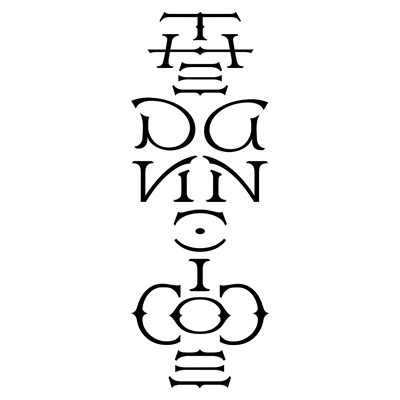The Da Vinci Code: Symbolism, History, And Controversy

Table of Contents
Decoding the Symbolism in The Da Vinci Code
Symbolism is the lifeblood of The Da Vinci Code. Brown masterfully weaves a narrative rich with symbolic imagery, creating suspense and prompting readers to decipher hidden meanings. Understanding these symbols is crucial to grasping the novel's complex plot and underlying themes.
-
The Holy Grail: In the novel, the Grail is not simply a chalice but a symbol of feminine divinity, representing Mary Magdalene and the continuation of Jesus's bloodline. This interpretation differs significantly from traditional Christian beliefs where the Grail is often associated with the cup used at the Last Supper. The novel's representation of the Grail sparks debate and re-examination of its historical and symbolic meanings.
-
The Rosy Cross (Rosicrucians): This secretive, mystical society plays a central role, depicted as guardians of ancient secrets and keepers of the truth about Jesus and Mary Magdalene. The Rosicrucians, with their alchemical and esoteric traditions, add another layer of complexity to the symbolism within The Da Vinci Code. Their historical existence, though shrouded in mystery, lends an air of authenticity—or at least, plausibility—to the narrative.
-
Sacred Geometry: Geometric patterns and proportions, like the Fibonacci sequence and the Golden Ratio, appear throughout the novel, suggesting hidden meanings and connections between seemingly disparate elements. This use of sacred geometry enhances the mystical atmosphere and reinforces the idea of a hidden, coded message embedded within the narrative.
-
Alchemical Symbols: Subtle alchemical symbols further enrich the symbolic landscape. These symbols, often linked to transformation and spiritual enlightenment, contribute to the book's air of mystery and intrigue. Their inclusion subtly hints at the deeper, esoteric knowledge supposedly held by the Priory of Sion.
The use of this multifaceted symbolism elevates The Da Vinci Code beyond a simple thriller; it transforms it into a puzzle demanding interpretation and sparking endless discussion.
Historical Context and Factual Accuracy in The Da Vinci Code
The Da Vinci Code takes liberties with historical facts, prompting significant controversy. While drawing inspiration from real historical figures and events, the novel often presents them in a highly speculative and controversial light.
-
Jesus Christ and Mary Magdalene: The novel portrays a romantic relationship between Jesus and Mary Magdalene, suggesting a bloodline that continues to the present day. This claim directly contradicts traditional Christian teachings and mainstream historical accounts.
-
The Priory of Sion: The book portrays this organization as a real, historical society dedicated to protecting the secret of Jesus's lineage. While the Priory of Sion did exist, its historical significance and alleged connection to the events described in The Da Vinci Code are highly contested by historians.
-
Other Historical Claims: The book also makes claims about the suppression of early Christian texts and the manipulation of historical records by the Catholic Church. Many of these claims are based on fringe historical interpretations and lack strong evidence from mainstream scholarship.
Here's a quick summary of some specific claims and their accuracy:
| Claim | Accuracy | Source |
|---|---|---|
| Jesus and Mary Magdalene's marriage | Highly unlikely/unsubstantiated | No credible historical evidence |
| Priory of Sion's true power | Exaggerated significantly | The Priory's historical influence is minimal |
| Suppression of Gnostic texts | Partially true, complex issue | Some texts were suppressed, but reasons vary |
The blending of historical fact and fiction in The Da Vinci Code is a key element of its appeal, but it also fuels much of the controversy surrounding it.
The Controversies Surrounding The Da Vinci Code
The publication of The Da Vinci Code ignited a firestorm of debate. Its depiction of Jesus, Mary Magdalene, and the Catholic Church provoked strong reactions from religious groups and historians alike.
-
Historical Inaccuracies: Critics point to the novel's numerous historical inaccuracies and misrepresentations as a major flaw. The liberties taken with historical figures and events are seen as undermining the integrity of the narrative.
-
Theological Implications: The book's portrayal of Jesus and his relationship with Mary Magdalene challenges traditional Christian beliefs and has been seen as offensive by many devout Christians.
-
Portrayal of Institutions: The depiction of the Catholic Church as a conspiratorial organization dedicated to suppressing the truth about Jesus's lineage was seen as deeply disrespectful and inflammatory.
-
Public Response and Legal Challenges: The book's immense popularity and provocative content led to widespread public debate, along with several lawsuits and threats of legal action from religious organizations and individuals. However, supporters defended the novel as a work of fiction that stimulated intellectual curiosity and challenged conventional perspectives.
The enduring controversies surrounding The Da Vinci Code highlight the novel's power to provoke critical thinking and re-examine established beliefs about religion, history, and the nature of truth itself.
A Lasting Legacy of Intrigue: Understanding The Da Vinci Code
The Da Vinci Code remains a compelling case study in the intersection of fiction, history, and symbolism. Its complex use of symbolism, its controversial portrayal of historical events and figures, and the controversies it ignited continue to make it a topic of discussion and debate. The novel's enduring influence lies in its ability to stimulate critical thinking about religion, history, and the interpretation of truth. It successfully blends elements of a thriller with historical and religious themes, creating a unique and thought-provoking narrative. The exploration of hidden meanings and secret societies adds a layer of mystery and intrigue that has captivated millions of readers worldwide.
Delve deeper into the world of The Da Vinci Code and its rich tapestry of symbolism and historical intrigue. Start your research today!

Featured Posts
-
 Celebrate Greece In Portola Valley The Grand Opening Of A New Taverna
May 13, 2025
Celebrate Greece In Portola Valley The Grand Opening Of A New Taverna
May 13, 2025 -
 Happs Walk Off Delivers Cubs Victory Over Dodgers
May 13, 2025
Happs Walk Off Delivers Cubs Victory Over Dodgers
May 13, 2025 -
 Kakanwil Papua Ajak Masyarakat Dukung Persipura Dukungan Penting Untuk Kebangkitan Tim
May 13, 2025
Kakanwil Papua Ajak Masyarakat Dukung Persipura Dukungan Penting Untuk Kebangkitan Tim
May 13, 2025 -
 Italian Open Sabalenka Through To Round Of 32
May 13, 2025
Italian Open Sabalenka Through To Round Of 32
May 13, 2025 -
 Cubs Vs Dodgers Prediction Will La Remain Unbeaten At Home
May 13, 2025
Cubs Vs Dodgers Prediction Will La Remain Unbeaten At Home
May 13, 2025
Latest Posts
-
 Sun Kissed Highlights Eva Longorias Stunning Hairstyle Transformation
May 13, 2025
Sun Kissed Highlights Eva Longorias Stunning Hairstyle Transformation
May 13, 2025 -
 Eva Longoria Debuts A New Look Sun Kissed Highlights And A Dramatic Hairstyle Change
May 13, 2025
Eva Longoria Debuts A New Look Sun Kissed Highlights And A Dramatic Hairstyle Change
May 13, 2025 -
 Sabalenkas Miami Open Win A Dominant Performance Against Pegula
May 13, 2025
Sabalenkas Miami Open Win A Dominant Performance Against Pegula
May 13, 2025 -
 Miami Open 2024 Sabalenka Claims Victory Against Pegula
May 13, 2025
Miami Open 2024 Sabalenka Claims Victory Against Pegula
May 13, 2025 -
 Aryna Sabalenkas Miami Open Victory A Dominant Performance Against Jessica Pegula
May 13, 2025
Aryna Sabalenkas Miami Open Victory A Dominant Performance Against Jessica Pegula
May 13, 2025
